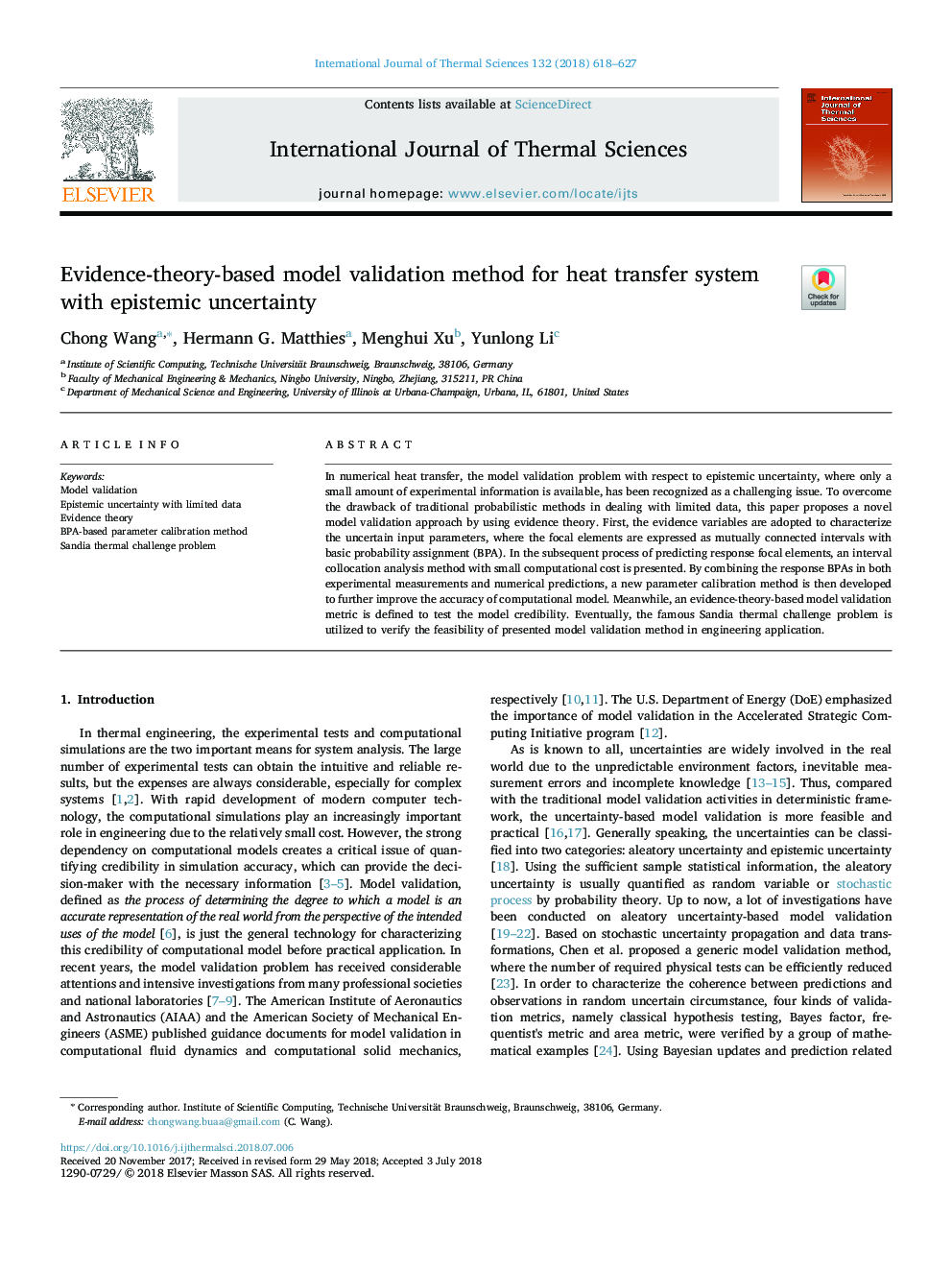| Article ID | Journal | Published Year | Pages | File Type |
|---|---|---|---|---|
| 7060654 | International Journal of Thermal Sciences | 2018 | 10 Pages |
Abstract
In numerical heat transfer, the model validation problem with respect to epistemic uncertainty, where only a small amount of experimental information is available, has been recognized as a challenging issue. To overcome the drawback of traditional probabilistic methods in dealing with limited data, this paper proposes a novel model validation approach by using evidence theory. First, the evidence variables are adopted to characterize the uncertain input parameters, where the focal elements are expressed as mutually connected intervals with basic probability assignment (BPA). In the subsequent process of predicting response focal elements, an interval collocation analysis method with small computational cost is presented. By combining the response BPAs in both experimental measurements and numerical predictions, a new parameter calibration method is then developed to further improve the accuracy of computational model. Meanwhile, an evidence-theory-based model validation metric is defined to test the model credibility. Eventually, the famous Sandia thermal challenge problem is utilized to verify the feasibility of presented model validation method in engineering application.
Keywords
Related Topics
Physical Sciences and Engineering
Chemical Engineering
Fluid Flow and Transfer Processes
Authors
Chong Wang, Hermann G. Matthies, Menghui Xu, Yunlong Li,
